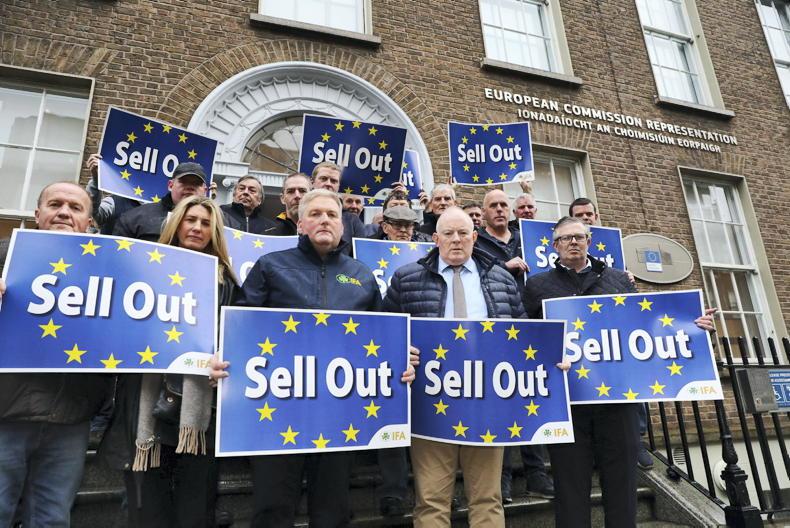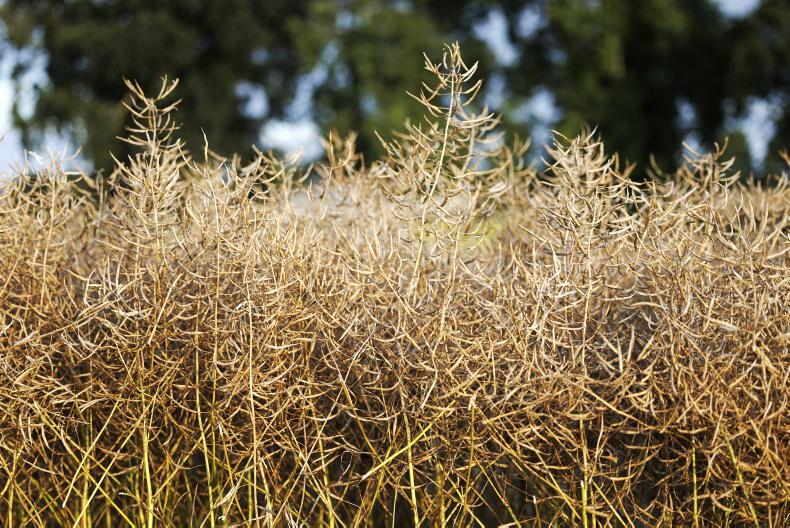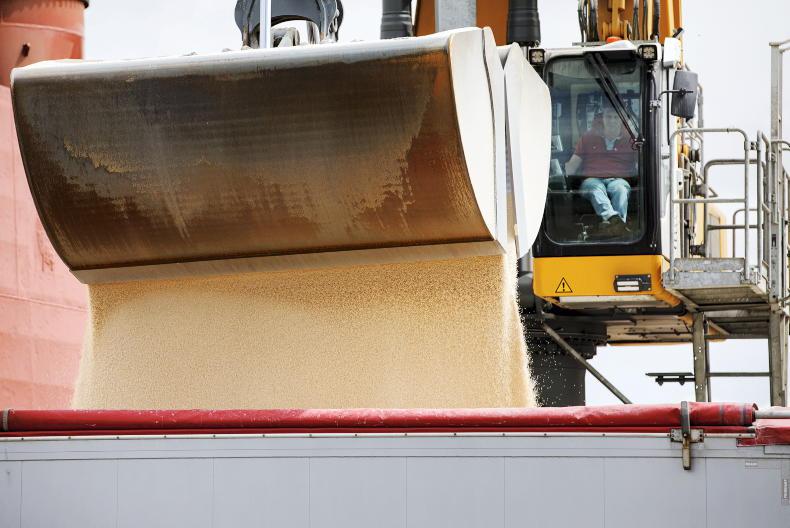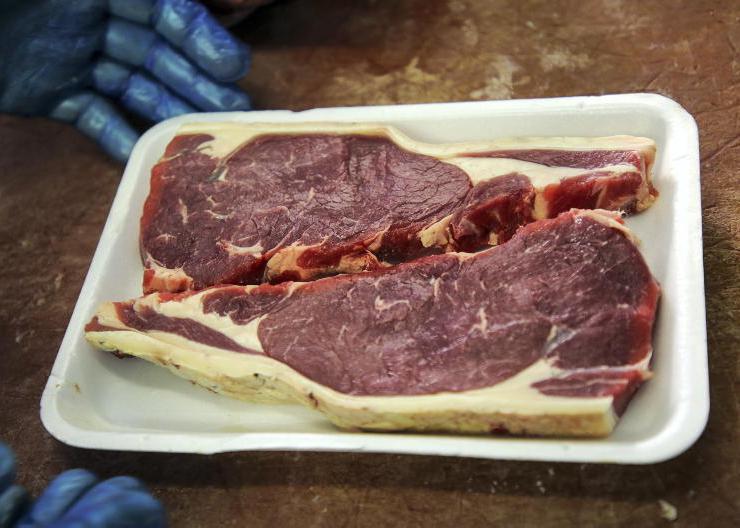Farmers across the EU have been protesting over recent days ahead of the Mercosur summit of Brazil’s, Uruguay’s, Argentina’s and Paraguay’s leaders in Montevideo, which concludes on Friday 6 December.
It is widely expected, barring some last-minute stumbling block, that the trade deal with the European Union will be announced.
This will, of course, be the second time it is announced - the agreement was concluded in June 2019, but very quickly the lack of precision on South American environmental controls became an issue.
The announcement of the Green Deal and Farm to Fork Strategy early in 2020 combined with a large increase of Green Party members in the European Parliament quickly revealed that the deal as it stood had little chance of approval.
Since then, negotiations have been ongoing, though exclusively on issues around the environment - the core deal on tariffs and quotas has remained intact as agreed in 2019.
Agreement has been close on a number of occasions, particularly this time last year, but failed to get over the line at the last minute.
It is top of the trade priority list for the new Commission and it would be the perfect start if the deal is agreed within the first week of it taking office.
Approval process for a deal
Assuming there are no last-minute glitches, the next step is ratification. It is unclear what level of approval will be required from member states.
The EU has authority on all trade matters, with a qualified majority of member states and a simple majority of MEPs required for ratification.
Issues that go beyond EU-only approval could be split into a separate category, enabling the agreement operate on a provisional basis pending ratification at member state level, as was the case with Canada in the CETA deal.

French farmers drove their tractors through the streets of Agen last month to protest against the prospect of a trade agreement between the European Union and the Latin American countries united within Mercosur. \ REUTERS/Nacho Doce
So far, France and Poland are on a path to oppose any deal. They will need at least one other country, so that combined they represent at least 35% of the EU population, the threshold for blocking a qualified majority in a vote by the Council of Ministers.
Italy has been making noises about opposing the deal and there is a possibility that the Dutch may also oppose.
However, if the European Commission agrees a deal, we can expect huge pressure on member states to support and it has already been speculated on that a special financial support package for farmers could be found to sweeten the deal.
A €1bn fund was included in the original agreement and referenced by then-agriculture commissioner Phil Hogan in an interview with the Irish Farmers Journal.
Impact assessment
The problem for farmers across Europe who are opposing the deal is that it is, overall, a good deal for the wider EU industrial economy, with only the beef and poultry sector the big losers and along with sheep to a lesser extent.
The Joint Research Centre (JRC) - the European Commission’s science and knowledge service - published a cumulative economic impact of trade agreements on EU agriculture at the beginning of this year.
It considered 10 agreements either recently concluded or in negotiation plus the UK deals with Australia, New Zealand and the comprehensive and progressive agreement for trans-Pacific partnership (CPTPP).
Overall, EU agri-food exports are projected to increase by between 27% (€3.5bn) in the conservative scenario or 38% (€4.8bn) by 2032 in the ambitious scenario.
Total agri-food imports are forecast to increase by 2.7% (€3.1bn) in the conservative scenario and 3.6% (€4.1bn) in the ambitious scenario.
Import increases
Within these overall figures, there are winners and losers. Depending on which scenario, the assessment is that the EU will import between 81,000 and 91,000 tonnes more beef with the trade deals, the vast majority of which will come from Mercosur countries.
Sheepmeat imports are forecast to increase by either 3.5% (4,000t) in the conservative scenario and 5.3% (6,000t) in the ambitious scenario. Poultry meat volumes are forecast to increase by either 209,000t (21.3%) or 274,000t (28.3%) depending on scenario.
Export opportunities
Dairy exports are forecast to benefit from the trade deals, with a 4.8% increase in export values (€780m) forecast in the ambitious scenario.
Pigmeat exports are also forecast to increase, up 5.4% in value (€566m) in the ambitious scenario and a further 118,000t of pigmeat (carcase weight equivalent) exported.
Processed agri-food products, wine and beverages, including tobacco products, are also forecast to benefit from the trade deals in the cumulative impact assessment.
Irish Government assessment
In June 2021, the Department of Enterprise, Trade and Employment published an economic and sustainability impact assessment on Ireland. The 144-page document analysed in great detail the pros and cons of the Mercosur deal for the Irish economy.
It concluded that the deal would mean an increase in Irish exports to the South American countries by 17%, while imports would grow by 12% from a very low base.
Irish manufacturing exports to Mercosur are predicted to increase by €1.4bn, made up mainly from chemicals (including pharma); computer, electronics and optical products; electrical
equipment, machinery and some processed foods and beverages (whiskey).
In terms of value, the report suggested the value of Irish exports to Mercosur countries would increase by €1.4bn by 2035.
The report recognises that the deal “may add additional challenges for beef producers”.
It takes a simplistic mathematical approach, putting the increase as 0.7% of total EU production without recognising that EU imports from South America are high-value steak cuts.
It also highlights that the deal makes provision of a €1bn fund to support farmers against market disturbance and that there is a safeguard clause to switch off imports if it has a serious impact on markets with oversupply.
As well as the major corporation tax payers to the Irish exchequer benefiting from a Mercosur trade deal, so too would the entire EU industrial economy.
This means the pressure will be on farmers in Ireland and across the EU to take one for the team by accepting the Mercosur deal.
Farmer opposition has been mobilising across the continent over recent weeks, while Ireland has been preoccupied by a general election recently, where it was down the list of priorities - if on it at all.
The Irish Farmers' Association has made its views known, handing in a letter to the EU office in Dublin this week and no doubt opposition will ramp up when the deal is announced.
At this point, the pro deal lobby looks like a juggernaut, but if a deal is forced on farmers, then a suitable compensation package is a minimum for the sectors most affected.
This cannot be a short-term measure, as given the current global beef supply situation, there may be no immediate problem - the real threat to farmers is from the long-term impact.
Farmers across the EU have been protesting over recent days ahead of the Mercosur summit of Brazil’s, Uruguay’s, Argentina’s and Paraguay’s leaders in Montevideo, which concludes on Friday 6 December.
It is widely expected, barring some last-minute stumbling block, that the trade deal with the European Union will be announced.
This will, of course, be the second time it is announced - the agreement was concluded in June 2019, but very quickly the lack of precision on South American environmental controls became an issue.
The announcement of the Green Deal and Farm to Fork Strategy early in 2020 combined with a large increase of Green Party members in the European Parliament quickly revealed that the deal as it stood had little chance of approval.
Since then, negotiations have been ongoing, though exclusively on issues around the environment - the core deal on tariffs and quotas has remained intact as agreed in 2019.
Agreement has been close on a number of occasions, particularly this time last year, but failed to get over the line at the last minute.
It is top of the trade priority list for the new Commission and it would be the perfect start if the deal is agreed within the first week of it taking office.
Approval process for a deal
Assuming there are no last-minute glitches, the next step is ratification. It is unclear what level of approval will be required from member states.
The EU has authority on all trade matters, with a qualified majority of member states and a simple majority of MEPs required for ratification.
Issues that go beyond EU-only approval could be split into a separate category, enabling the agreement operate on a provisional basis pending ratification at member state level, as was the case with Canada in the CETA deal.

French farmers drove their tractors through the streets of Agen last month to protest against the prospect of a trade agreement between the European Union and the Latin American countries united within Mercosur. \ REUTERS/Nacho Doce
So far, France and Poland are on a path to oppose any deal. They will need at least one other country, so that combined they represent at least 35% of the EU population, the threshold for blocking a qualified majority in a vote by the Council of Ministers.
Italy has been making noises about opposing the deal and there is a possibility that the Dutch may also oppose.
However, if the European Commission agrees a deal, we can expect huge pressure on member states to support and it has already been speculated on that a special financial support package for farmers could be found to sweeten the deal.
A €1bn fund was included in the original agreement and referenced by then-agriculture commissioner Phil Hogan in an interview with the Irish Farmers Journal.
Impact assessment
The problem for farmers across Europe who are opposing the deal is that it is, overall, a good deal for the wider EU industrial economy, with only the beef and poultry sector the big losers and along with sheep to a lesser extent.
The Joint Research Centre (JRC) - the European Commission’s science and knowledge service - published a cumulative economic impact of trade agreements on EU agriculture at the beginning of this year.
It considered 10 agreements either recently concluded or in negotiation plus the UK deals with Australia, New Zealand and the comprehensive and progressive agreement for trans-Pacific partnership (CPTPP).
Overall, EU agri-food exports are projected to increase by between 27% (€3.5bn) in the conservative scenario or 38% (€4.8bn) by 2032 in the ambitious scenario.
Total agri-food imports are forecast to increase by 2.7% (€3.1bn) in the conservative scenario and 3.6% (€4.1bn) in the ambitious scenario.
Import increases
Within these overall figures, there are winners and losers. Depending on which scenario, the assessment is that the EU will import between 81,000 and 91,000 tonnes more beef with the trade deals, the vast majority of which will come from Mercosur countries.
Sheepmeat imports are forecast to increase by either 3.5% (4,000t) in the conservative scenario and 5.3% (6,000t) in the ambitious scenario. Poultry meat volumes are forecast to increase by either 209,000t (21.3%) or 274,000t (28.3%) depending on scenario.
Export opportunities
Dairy exports are forecast to benefit from the trade deals, with a 4.8% increase in export values (€780m) forecast in the ambitious scenario.
Pigmeat exports are also forecast to increase, up 5.4% in value (€566m) in the ambitious scenario and a further 118,000t of pigmeat (carcase weight equivalent) exported.
Processed agri-food products, wine and beverages, including tobacco products, are also forecast to benefit from the trade deals in the cumulative impact assessment.
Irish Government assessment
In June 2021, the Department of Enterprise, Trade and Employment published an economic and sustainability impact assessment on Ireland. The 144-page document analysed in great detail the pros and cons of the Mercosur deal for the Irish economy.
It concluded that the deal would mean an increase in Irish exports to the South American countries by 17%, while imports would grow by 12% from a very low base.
Irish manufacturing exports to Mercosur are predicted to increase by €1.4bn, made up mainly from chemicals (including pharma); computer, electronics and optical products; electrical
equipment, machinery and some processed foods and beverages (whiskey).
In terms of value, the report suggested the value of Irish exports to Mercosur countries would increase by €1.4bn by 2035.
The report recognises that the deal “may add additional challenges for beef producers”.
It takes a simplistic mathematical approach, putting the increase as 0.7% of total EU production without recognising that EU imports from South America are high-value steak cuts.
It also highlights that the deal makes provision of a €1bn fund to support farmers against market disturbance and that there is a safeguard clause to switch off imports if it has a serious impact on markets with oversupply.
As well as the major corporation tax payers to the Irish exchequer benefiting from a Mercosur trade deal, so too would the entire EU industrial economy.
This means the pressure will be on farmers in Ireland and across the EU to take one for the team by accepting the Mercosur deal.
Farmer opposition has been mobilising across the continent over recent weeks, while Ireland has been preoccupied by a general election recently, where it was down the list of priorities - if on it at all.
The Irish Farmers' Association has made its views known, handing in a letter to the EU office in Dublin this week and no doubt opposition will ramp up when the deal is announced.
At this point, the pro deal lobby looks like a juggernaut, but if a deal is forced on farmers, then a suitable compensation package is a minimum for the sectors most affected.
This cannot be a short-term measure, as given the current global beef supply situation, there may be no immediate problem - the real threat to farmers is from the long-term impact.











SHARING OPTIONS